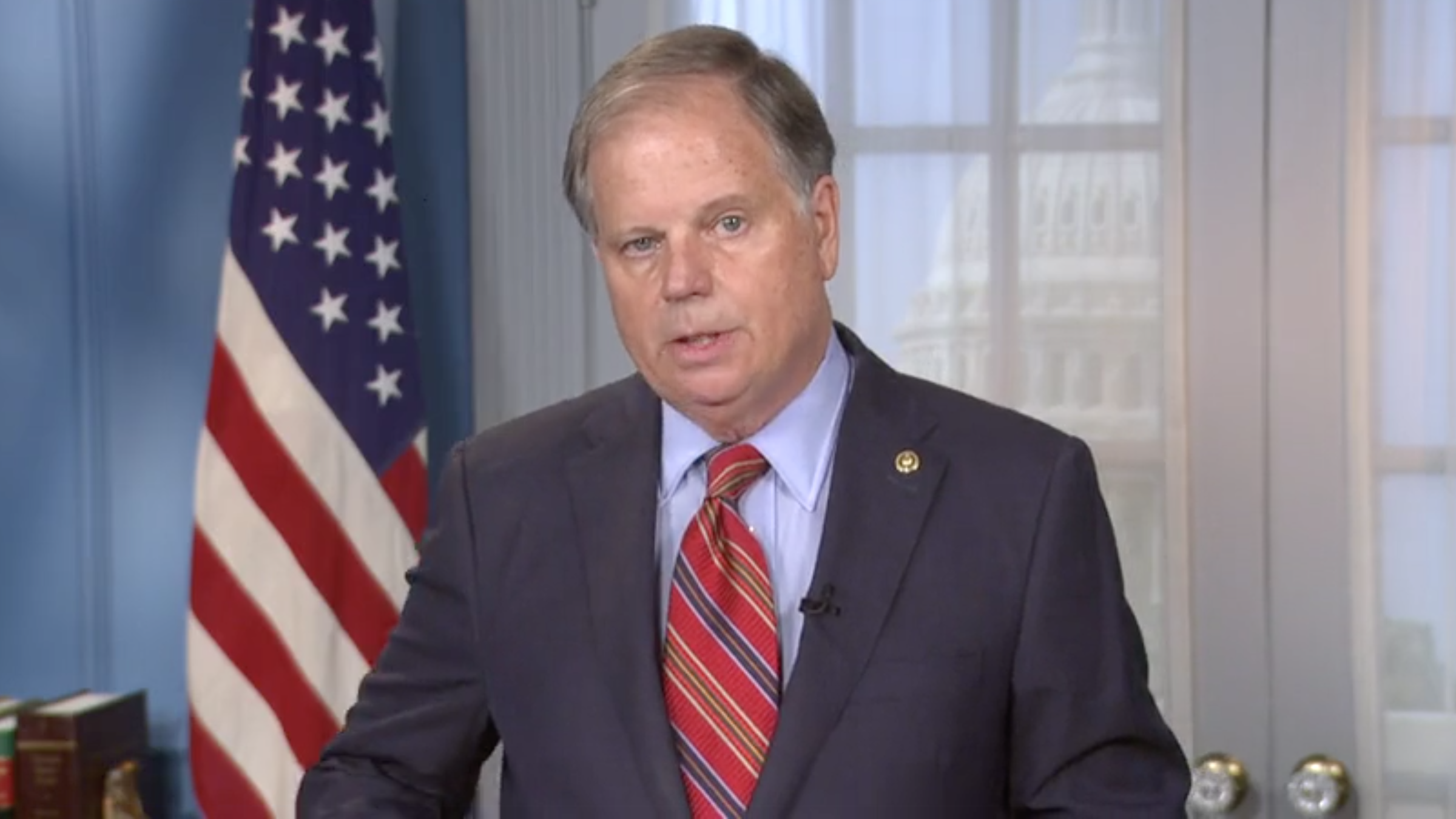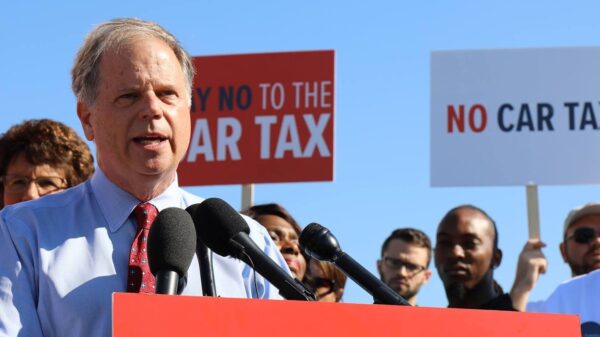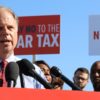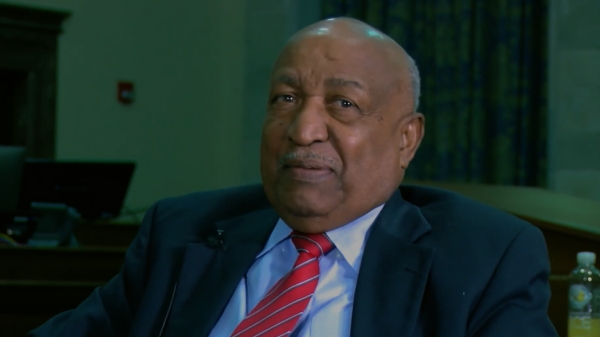As part of the long-awaited COVID relief legislation, Congress approved legislation pushed by Sen. Doug Jones, D-Alabama, and two Republican colleagues to simplify FAFSA college financial aid applications, strengthen historically Black colleges and restore Pell grants for incarcerated people.
Though Jones is just weeks away from the end of his Senate career, the year-end COVID relief and government funding package, passed late Monday, includes a number of measures Jones has advocated for this year.
The $2.3 trillion package includes both annual government funding and $900 billion specifically for COVID relief. It passed the Senate and the House of Representatives on Monday night by overwhelming bipartisan margins, and with Jones’s vote. The bill now heads to the president’s desk.
“The progress that this legislation represents for underserved and low-income students cannot be overstated,” Jones said. “From day one, I have been working with colleagues from both sides of the aisle to make a positive, meaningful impact for students and colleges in Alabama and across the country.”
The relief package will provide $600 direct payments to Americans in addition to extended and enhanced unemployment benefits, money for transit, funding for small business loans and resources for vaccine distribution and testing. [Here’s more on what the aid package includes.]
Jones led efforts with his colleagues in securing in the package $1.7 billion in additional funding and more than $1 billion in loan forgiveness for Historically Black Colleges and Universities. It also includes his legislation to shorten and simplify the FAFSA, and to end the 26-year ban on incarcerated individuals qualifying for Pell grants.
“Simplifying the burdensome FAFSA is a substantial step to make college more affordable and accessible. Further, I am thrilled that we could work together to find a way to forgive the debt many of our HBCUs carry. Even before this pandemic, HBCUs were already consistently under-resourced while providing quality education to many first-generation students,” Jones said.
Jones and Sens. Lamar Alexander, R-Tennessee, and Tim Scott, R-South Carolina, worked together on provisions to reduce the FAFSA from 108 questions to a maximum of 36 questions.
More on what Jones’s legislation will do:
- Reduce total questions from 108 questions to a maximum of 36 questions
- Reduce the Department of Education’s lengthy financial data verification process by instead using data from the IRS.
- Create simpler Pell Grant eligibility guidelines for maximum and minimum awards, so many applicants will know if they will get a maximum or minimum grant to go to college
- Enable an additional 555,000 students to qualify for Pell grants each year, and enable an additional 1.7 million students to qualify to receive the maximum Pell grant award each year.
- Restore the ability for incarcerated individuals to get a Pell grant.
- Forgive outstanding debt of HBCUs with loans under the Federal Capital Financing Loan Program.
- Repeal a requirement that limits how long students can borrow under the subsidized student loan program.
More provisions Jones spearheaded included in the package:
- End to surprise medical billing: Jones co-sponsored the bipartisan legislation aimed at protecting Americans from unexpected out-of-network and emergency medical bills.
- Eviction moratorium extension: The provision to create a moratorium on evictions and foreclosures, introduced by Jones and included in the CARES Act, has been extended until Jan. 31, 2021.
- $12 billion for Community Development Financial Institutions: Jones introduced legislation to increase these funds, aimed at helping low-income and minority communities weather the economic crisis.
- $20 billion for Economic Injury Disaster Loans: Jones co-sponsored legislation to increase loans available to small businesses in low-income communities.
- Employee Retention Tax Credit extension: The tax credit to help keep employees on payroll for the duration of the economic crisis, a policy modeled after Jones’ Paycheck Security Act legislation in the CARES Act, has been extended.
- $3.2 billion for rural broadband: Jones supported efforts to increase funding for rural broadband, according to his office.
- $54.3 billion for K-12 schools: Jones led a group of his colleagues in urging Senate leadership to increase funding for schools.
- $15 billion in funding for live venues: Jones co-sponsored legislation to provide assistance for live venues, independent movie theaters and cultural institutions.
- Tax treatment of PPP loans: Jones co-sponsored legislation to exempt PPP loans from being included in taxable income.
- Expanded PPP eligibility: Jones joined his colleagues in calling for 501(c)(6) nonprofits, including local newspapers and broadcasters, to be eligible for PPP loans.
- $3.7 million to study Chronic Wasting Disease: Jones urged funding for CWD research in a bipartisan letter, according to his office.
- $2 million to implement the Civil Rights Cold Case Records Collection Act: Jones’s original legislation to help solve civil rights cold cases was signed in to law in 2019.
Jones’s term in the Senate will end when the new Congress is sworn in in January. He’s considered a top contender to be Biden’s pick as attorney general — the other being Judge Merrick Garland — with a final decision expected as soon as this week. Garland was President Barack Obama’s last nominee to the Supreme Court, but his nomination was killed in the Senate in 2016.

















































